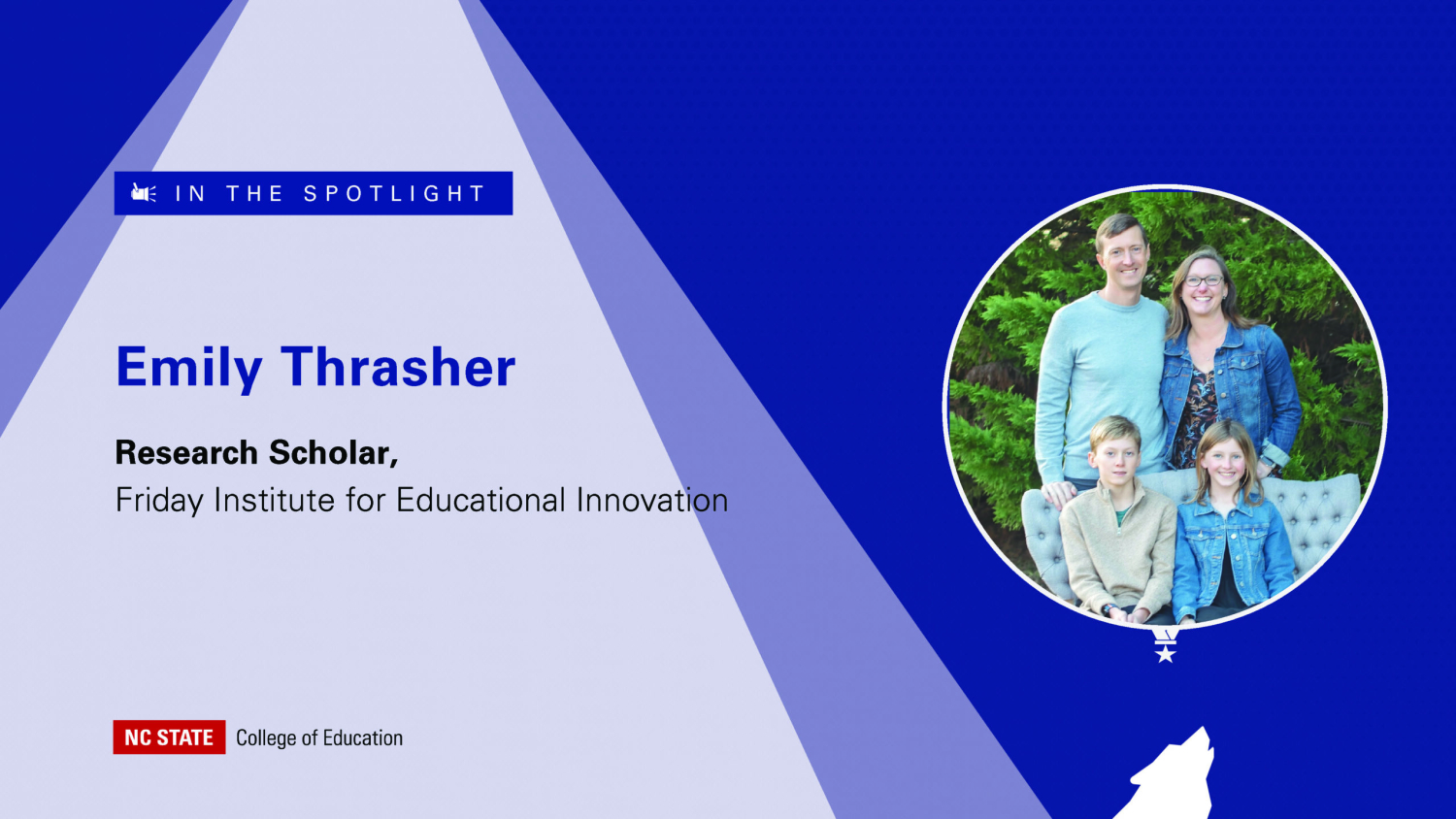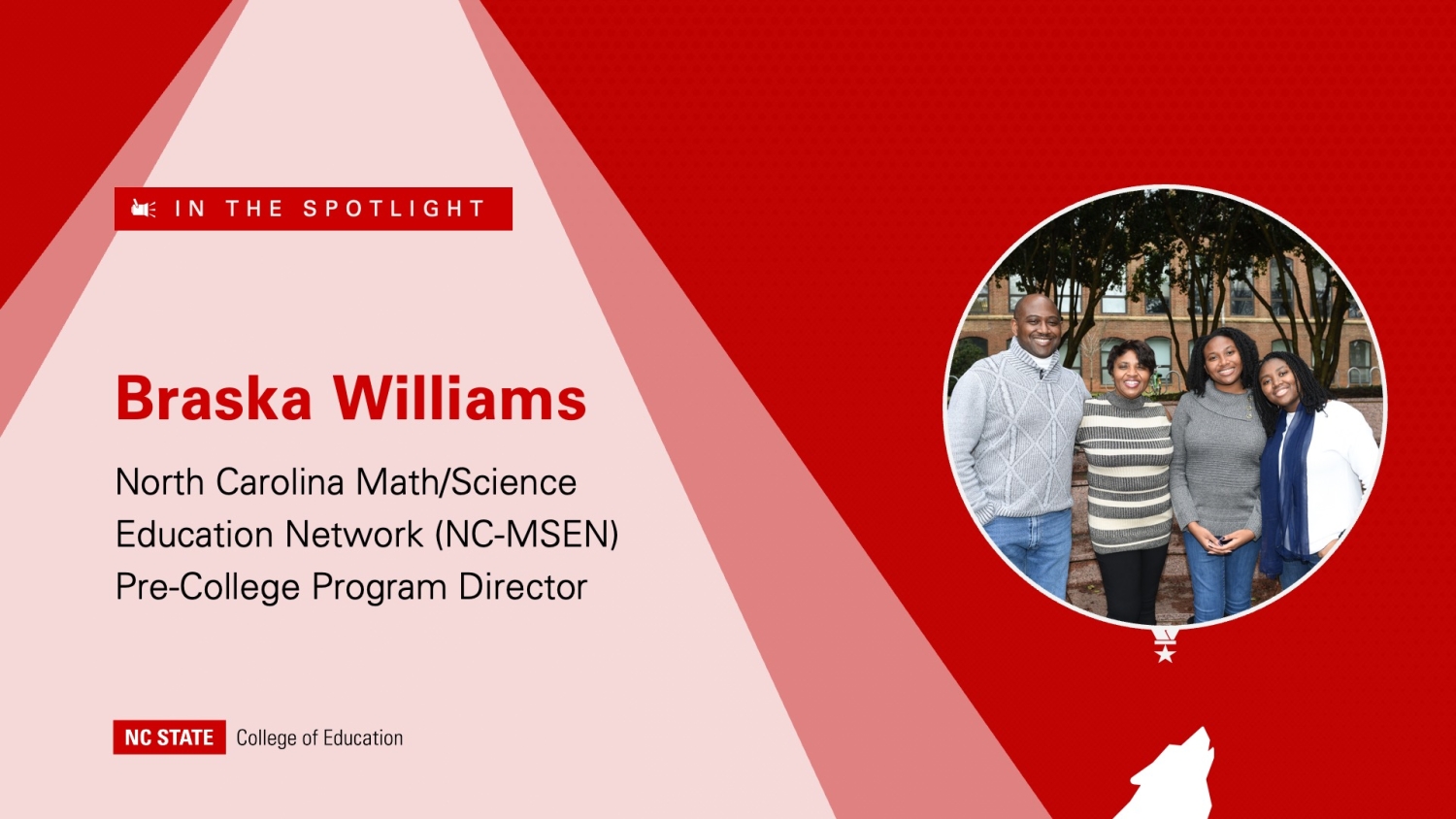Friday Institute Celebrates 20 Years on NC State’s Centennial Campus
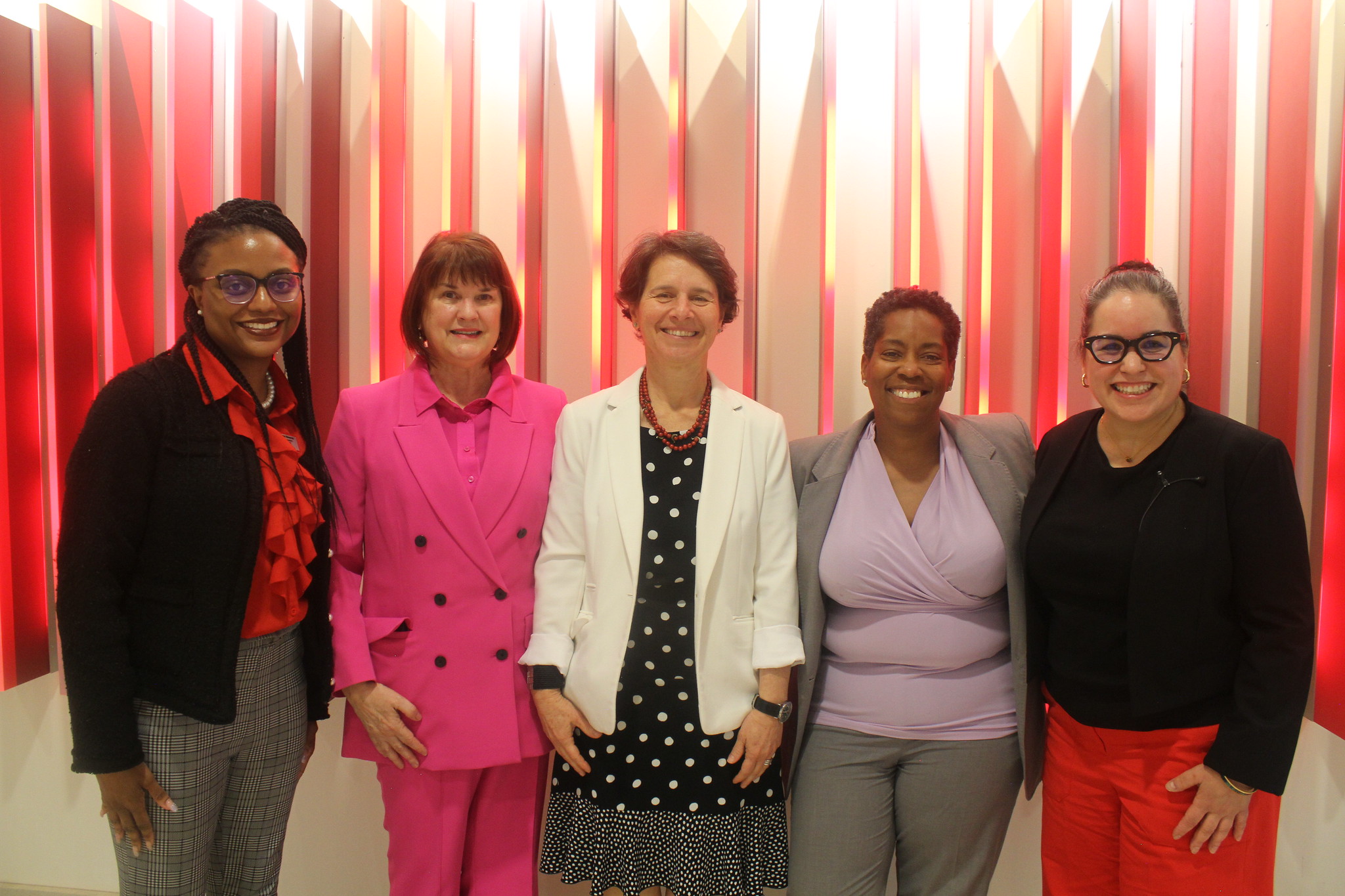
When the NC State College of Education was raising funds to support a new institute for research-to-practice innovation, Ann and Jim Goodnight came forward and said they wanted to name the building after Bill Friday, the former president of the University of North Carolina System and an education adviser to Presidents Johnson and Carter. The College of Education approached Friday with the idea, and he said he would only agree if Ida, his wife’s name, was on it too. This was the start of the William and Ida Friday Institute for Educational Innovation.
“This is going to be a place of excitement and high energy,” said Bill Friday during the groundbreaking ceremony of the Friday Institute building on April 15, 2004. “It is going to be a place where we aren’t afraid to try—even to fail—because the commitment is here to keep at it until we make the process better. If you have a spirit of creativeness and adventure, the Institute will be the place to be.”
On Friday, March 15, 2024, the Friday Institute celebrated the 20th anniversary of the groundbreaking of its building with a commemorative ceremony, featuring remarks from current Friday Institute Executive Director and Associate Dean for Translational Research in the College of Education Krista Glazewski and former executive directors Hiller Spires and Glenn Kleiman. College of Education Dean Paola Sztajn also offered remarks in addition to keynote speaker Nichole Pinkard, the Alice Hamilton Professor of Learning Sciences at Northwestern University. Former Friday Institute Executive Director Carla Johnson was also recognized at the ceremony.
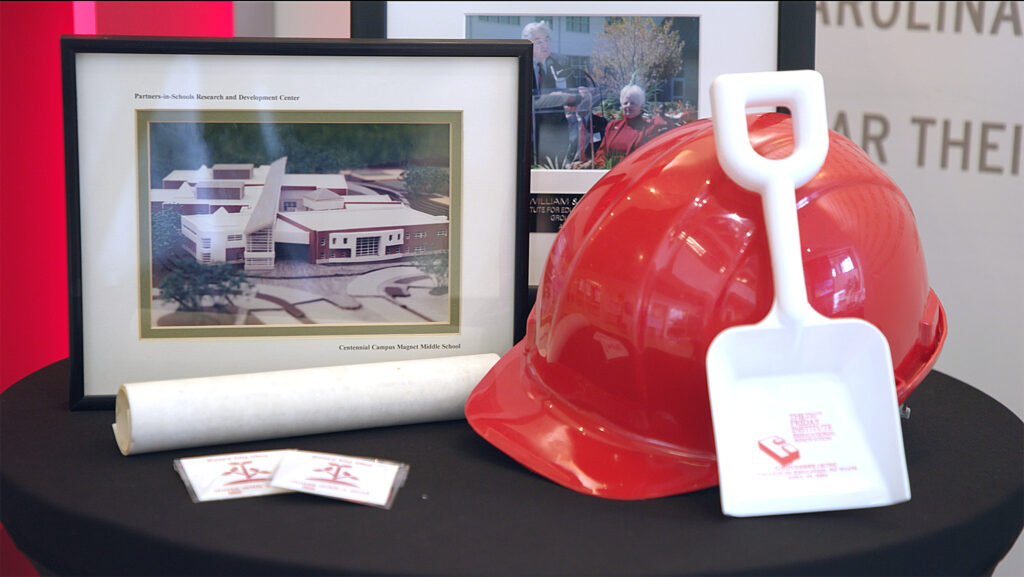
“Over the last 20 years, the Friday Institute has cultivated, nurtured and grown a space where people come to convene, collaborate and work for a better future for K-12 learners,” said Sztajn. “But the Friday Institute building is more than a space; it’s a community of those who are dedicated to advancing K-12 education, and I am honored to celebrate it with you today.”
When the Friday Institute broke ground on its state-of-the-art facility located on NC State’s Centennial Campus, it was envisioned to transform education to meet the demands of the 21st century. The building also carried forward the vision of North Carolina Gov. James B. Hunt, Jr. ’59, ’62, who envisioned a research institution attached to a middle school, connecting middle school students to professors and college students and delivering innovative teaching and learning strategies into the Wake County Public School System (WCPSS).
The journey to this groundbreaking was five years in the making. In 2000, WCPSS and the College of Education signed a lease agreement for construction of a partners-in-school research and development center. The College of Education had five years to raise the money and build what would become the Friday Institute. In 2001, an anonymous donor contributed $5 million to name the center after Bill Friday. According to former Dean Kathryn Moore, the faculty was also key to its opening, with many of the College of Education faculty and staff donating to the building as well as hours of their time formulating ideas and collaboratories for the institute.
Moore also reached out to several technology companies who were interested in her use of the word innovation. Several companies became technology partners in the opening of the building, including IBM, Cisco, Nortel and SAS, helping create state-of-the-art technology platforms that would allow the virtualization of and on-demand access to a suite of tools and educational content that could be used across the state.
“I came to believe that people don’t really want to give money for buildings,” said Moore. “They love to give money for ideas, and people get excited about innovation and creativity and collaboration and partnership. And here we are.”
In 2001, Hiller Spires was named the Friday Institute’s interim director, and she would eventually become its founding director from 2002-2006. She would also serve as executive director of the Friday Institute and associate dean of NC State’s College of Education from 2019-2022.
“When Dean Moore, [former College of Education Director of Development] Eugenia Leggett and I first met with Mr. Friday—that very first meeting—he encouraged the College of Education to ask teachers what they needed from the FI to better support students,” said Spires. “We took his advice to heart and heard from an array of partners, including teachers, our own College of Education faculty and staff, policymakers and business leaders to create a shared vision. I’m delighted that the Friday Institute continues to center educator voices when designing and evaluating high-impact programs across the state.”
The Friday Institute officially opened Nov. 9, 2005, with 33,000 square feet and five public meeting and event spaces.
Since its opening, the Friday Institute has become a leader in K-12 education practice, research and policy, constantly shifting and changing its priorities as needed in K-12 education.
“Twenty years ago, we didn’t imagine that this is the work we’d be doing or the ground we’d be covering,” said Glazewski. “We have always been evolving.”
Former Executive Director Glenn Kleiman led the Friday Institute for 11 years from 2007 to 2018. He brought large projects to the organization, including the evaluation of the Race to the Top initiative for the state and Massive Open Online Courses for Educators (MOOC-Eds).
“The work was broad based not just because we liked to do many different things but that also informed our ability to think deeply about the challenges of educational innovation and to be at the table with policymakers and state leaders to help them use evidence-based practices and think through carefully state plans and programs,” said Kleinman during the ceremony in a pre-recorded video. “It enabled us to take a real leadership position on things like the school connectivity initiative to leading the development of the state’s Race to the Top proposal.”
Moving forward, the Friday Institute will continue to do what it always does: meet the needs of K-12 students and educators, said Glazewski during her remarks. She shared three ways the Friday Institute will carry out their mission:
- Work at scale and tell individual stories, noting that the Friday Institute has a high number of cases that showcase its impact in K-12 education.
- Prepare learners, educators and leaders for a complex, dynamic future, including initiatives for artificial intelligence in K-12 policy, curricula and administration.
- Catalyze change and innovation through strategic partnerships, observing that their ability to pivot enables the Friday Institute to establish new partnerships and possibilities daily.
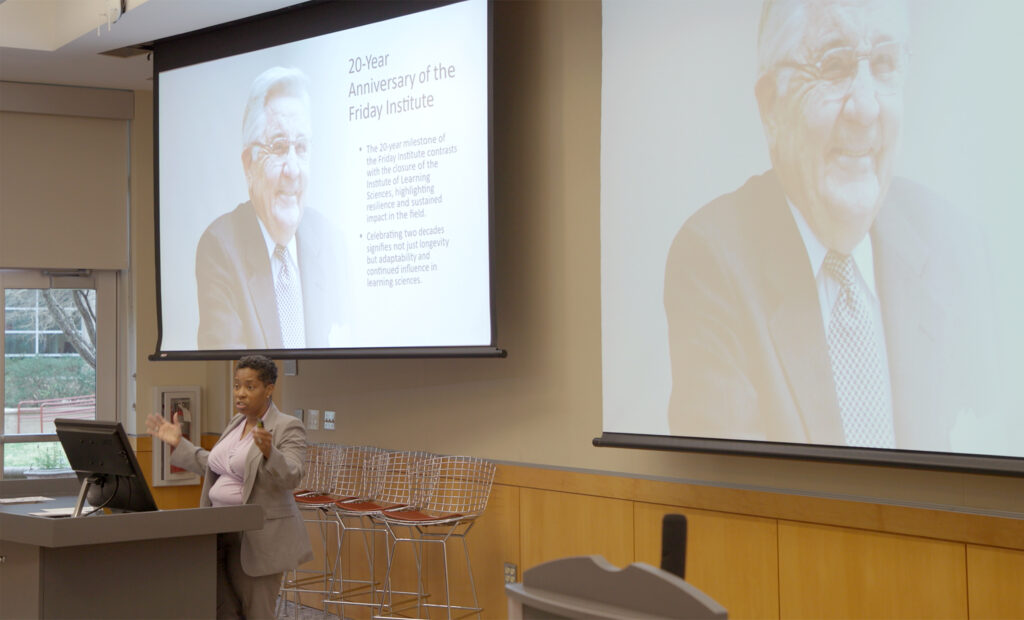
During her keynote speech, Nichole Pinkard, the Alice Hamilton Professor of Learning Sciences at Northwestern University, reflected on the impact of the Friday Institute and its exemplar role for other organizations, its important work in translational research and what it has been able to accomplish in 20 years.
“I have to give so much credit here that we’re on the 20th anniversary of something,” said Pinkard. “Institutes, centers are always founded every day…but so many of them don’t stay. And the courage and the fortitude and the relationships and the commitment from here around the state to persevere, keep going, through change of leadership and actually to be still at the forefront, which is really something that needs to be commended, and I hope in 40 years we’re back here talking about that.”
- Categories:
